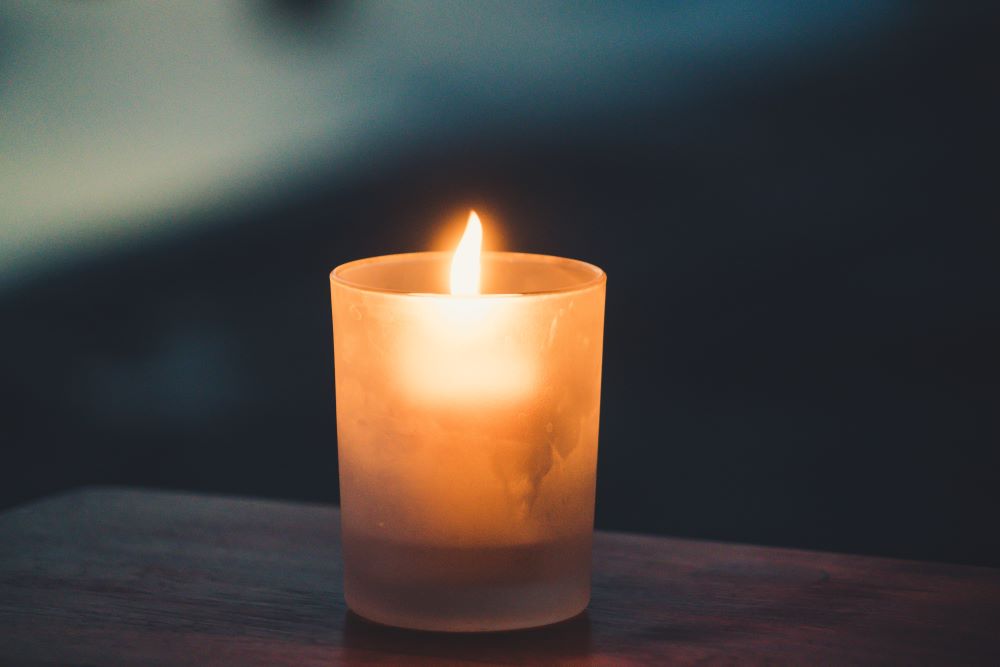
(Unsplash/Martha Dominguez de Gouveia)
More than a year ago, I worked as a pediatric hospital chaplain, though perhaps a subpar one, given that I didn't connect well with most of the children. I always seemed to either underestimate or overestimate their ages, and I often felt like many parents expected me to be Mr. Rogers rather than myself.
The nurses and doctors probably thought I meddled too much, or perhaps wrote me off as simply earnest and sweet. But the children had a remarkable capacity to see through it all and ask the bigger questions.
"Where do new ideas come from?"
"What’s the 'last' number?"
"How can you tell 'good guys' from 'bad guys?' "
"What do I say to my mom and dad?"
One time, after a 3-year-old stabilized following a heart attack in the ICU, the attending physician asked me to speak to the parents. The dad was there, his face burrowed in his palms; the mom multitasking on her laptop between phone calls, holding her world together in her own way.
We began discussing what they loved about their son. His curiosity. His energy. His laughter.
Then the dad expressed that his son didn't deserve this, even though he knew "God had a plan."
I hesitated. The mom urged him to stay positive. He broke down in tears. I said something benign like, "there, there." Everything fell silent, and it became awkward.
The truth is, I don't know if the 3-year-old's heart attack or recovery was a part of God's plan. I don't know if any of the infants connected to feeding tubes in the neonatal intensive care unit or the chemotherapy patients waiting for news of remission are part of God's plan. All the theology and philosophy degrees in the world couldn't answer that question.
Advertisement
Yet many of us, myself included, often wonder at God's plan with a menagerie of metaphors whenever we find ourselves in moments of deep pain: blueprints, book chapters, compass-charting, paths to abide by, even tests. Each approach contains poetry and pitfalls. It's not my place to justify the pain people feel, nor refute the ways people make sense of a crisis. However we tell our stories, many of us find ways to incorporate these painful experiences into our lives, and often things do improve over time.
But sometimes they don't. And here is where I always had to admire the patients who rejected the premise of a divine reason. I still think about a 14-year-old boy with a terminal diagnosis whose mother sought prayers from all over the world. She often asked me to come by and pray, and we'd hold hands before procedures, or in the middle of video games or his lunchtime. He loved to read and I learned he was gifted in science class.
Many of us wanted to tell him everything was going to be OK. That God works in mysterious ways. And, of course, that it will get better.
But he knew it wouldn't. More important, he knew it with an acceptance that still valued anger and disappointment. He did not think much of religion and declined my greetings at his door if his mother wasn't present. I was proud that he could make that choice and respected his skepticism. His anger was painful to see, but righteous, even beautiful.
Many days, I wish I had told him that before he died.

(Unsplash/Paolo Nicolello)
Of course, this all brings to mind the biblical book of Job. But the questions I most want to explore aren't about theodicy or what God is actually considering — or not considering. This is not mostly about what I believe; it's about who I am in these moments and how I can be present for someone who is in agony. It is about remaining present.
This is what a mentor told me when I was too scared to return to the room of that strong-hearted 3-year-old and his parents after his father wept in front of me. I kept glancing at his door the next day, and the next, until I trusted in my courage to knock again. Disheveled blankets nested on the loveseat where his parents slept. "Get Well" cards littered the floor. And the boy giggled playfully, mischievously. His medical team was nearly ready to discharge him.
We had a good conversation, his parents and me. We talked about their son, their support system, what they planned to do when they settled back at home. We talked about their fear of coming back. None of us felt the need to talk about God's plans or what their son deserved; remaining present didn't demand it. But since then I have learned to say and embody, imperfectly and slowly, much else with many others. Things like:
"I don't know why this is happening, but I'm thankful I can witness this part of your story.
I am here (instead of "there, there").
May you know love amid your loneliness, amid your pain, amid your hopes, amid your questions, and amid your doubts.
And of course,"Your anger is painful to see, but righteous; even beautiful."








